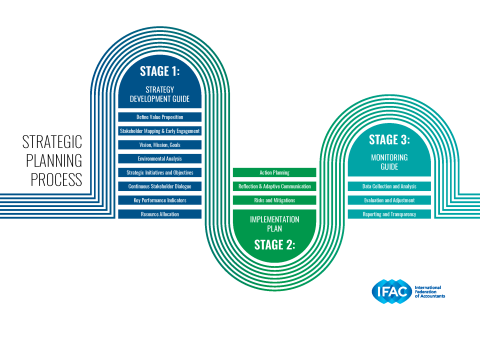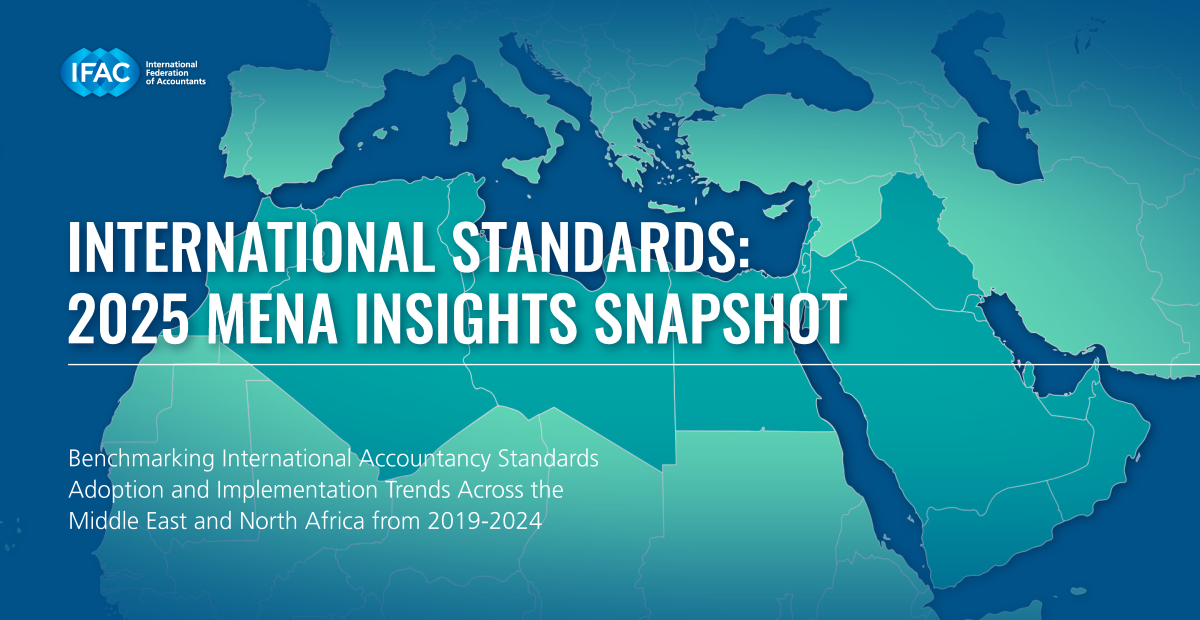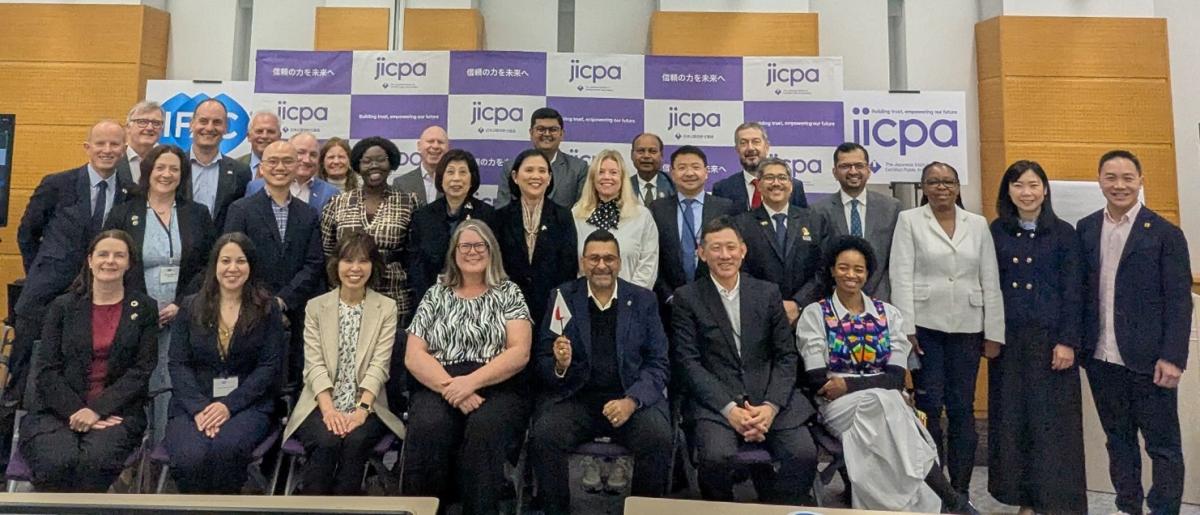Enhanced Toolkit for PAOs to Advance Strategic Planning: Second Edition Out Now
At IFAC, we believe strong Professional Accountancy Organizations (PAOs) are essential to a healthy global economy. They are trusted voices on financial reporting, ethics, and public accountability. To lead effectively, PAOs must be strategic, resilient, and focused on delivering real value to their members and stakeholders.
Today, we’re announcing the second edition of the IFAC Professional Accountancy Organization (PAO) Strategy Planning Toolkit: Continuous Learning and Improvement Edition. This updated toolkit simplifies and streamlines guidance, introduces new resources, and integrates an embedded Value Proposition Framework to help PAOs define and communicate their value, measure what matters, and adapt with confidence. These improvements come directly from user feedback and reflect IFAC’s own strategy proposition to deliver value to its members.

Lee White, IFAC Chief Executive Officer, said, “We’ve seen firsthand how a clear and dynamic strategy strengthens purpose, focus, and impact. This second edition of our toolkit builds on lessons from our own strategic planning process, emphasizing continuous learning, adaptability, and measurable value. It’s about helping PAOs turn strategy into action, ensuring they remain relevant and resilient in a rapidly changing environment.”
Jelena Misita, Chair of IFAC’s PAO Development Advisory Group, said, “We listened closely to PAOs using the first version, and one message was clear: they want to better define and demonstrate their value. The new edition integrates a Value Proposition Framework as an essential part of strategic planning, helping PAOs strengthen relevance, demonstrate impact more effectively, and align strategy and resources with their purpose.”
Patrick Kabuya, Senior Financial Management Specialist, the World Bank, said, “We appreciate the opportunity to collaborate with IFAC in promoting and supporting the rollout of the updated toolkit. We believe this toolkit will help build stronger, more sustainable, and relevant PAOs, which are essential for fostering trust, accountability, and transparency — key factors in driving sustainable economic growth.”
Sixto Coy, President, Institute of Chartered Accountants of the Caribbean (ICAC) said, “The Caribbean profession is strengthened when our PAOs have access to practical tools that help them plan strategically and deliver measurable value. IFAC’s updated toolkit reinforces our shared commitment to building trust, relevance, and resilience across the region’s accountancy profession.”
The toolkit was officially launched today ahead of an IFAC Value Proposition workshop co-hosted with ICAC and the World Bank in Barbados. This marks the culmination of a global rollout that included soft launch workshops with the Fédération Internationale des Experts-comptables Francophones in Lyon in September and with the Saudi Capital Market Authority and the Saudi Organization for Chartered and Professional Accountants in Riyadh on October 1 during IFAC Connect MENA.
We express our appreciation to Jelena Misita, Chair of the PAO Development Advisory Group, along with Berry Wammes, Chair of the Value Proposition Workstream, Panagiotis Alamanos, Chair of the Strategic Planning Workstream, and all workstream members for their leadership and valuable contributions.
Learn from the PAOs themselves how the toolkit has helped them become more resilient.
About IFAC
IFAC, by connecting and uniting its members, makes the accountancy profession truly global.
IFAC member organizations are champions of integrity and professional quality, and proudly carry their membership as a badge of international recognition.
IFAC and its members work together to shape the future of the profession through learning, innovation, a collective voice, and commitment to the public interest.



